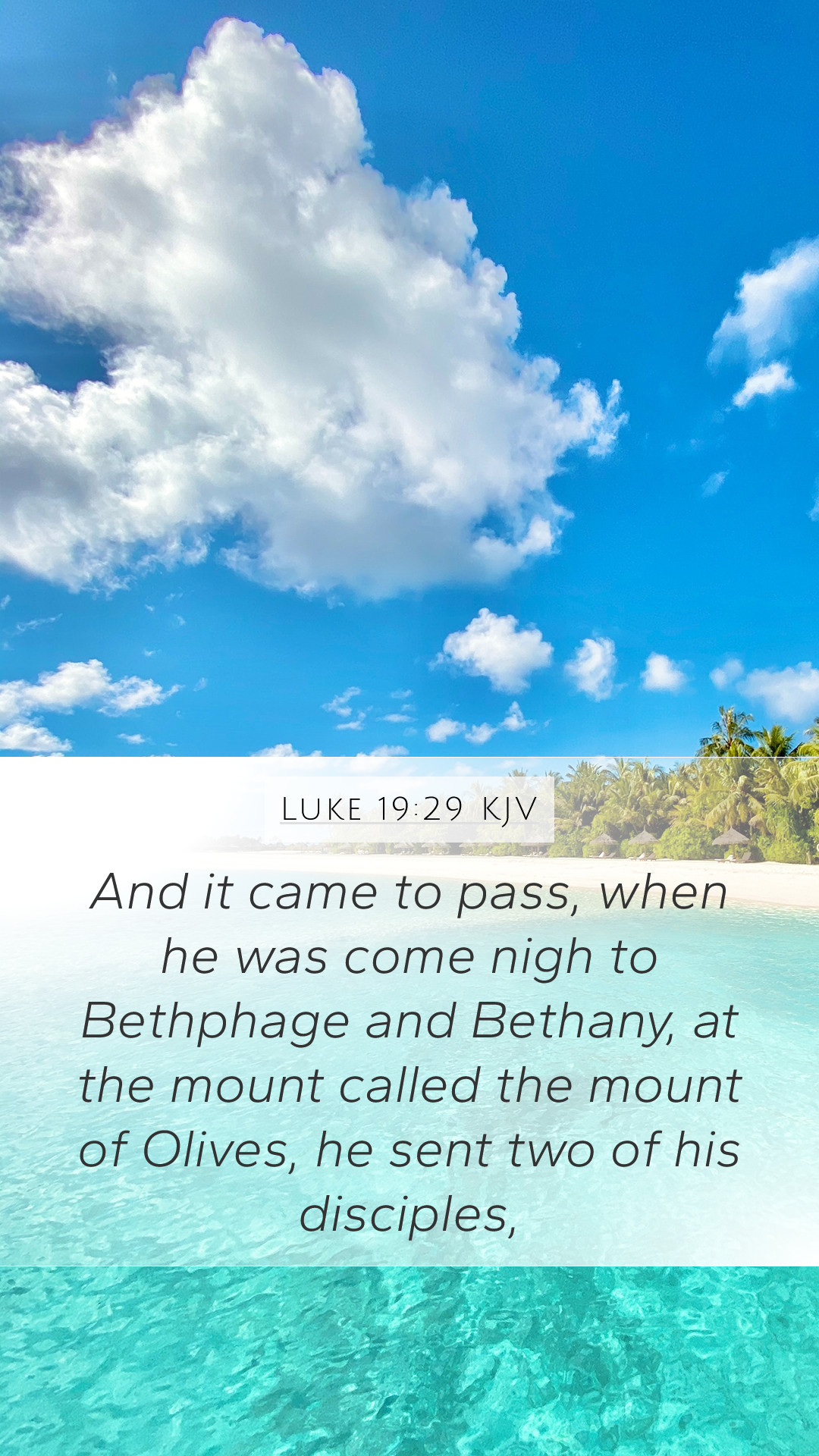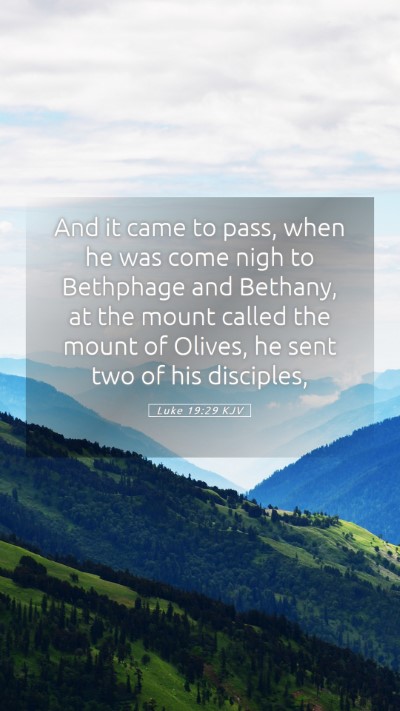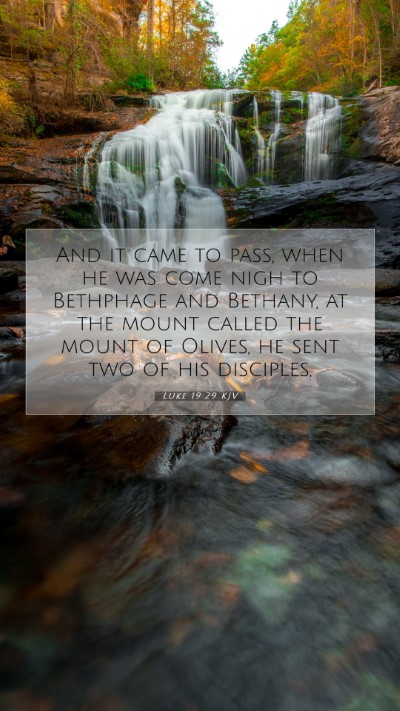Understanding Luke 19:29
In the Bible, Luke 19:29 captures a profound moment in the Gospel narrative, presenting rich themes surrounding Jesus' humility, kingship, and the fulfillment of prophecy. This exegesis will unpack its significance by drawing insights from public domain commentaries, supported by relevant scripture analysis.
Verse Context
The verse states: "And it came to pass, when he was come nigh to Bethphage and Bethany, at the mount called the mount of Olives, he sent two of his disciples." This incident occurs as Jesus approaches Jerusalem for the final time before His crucifixion, an event that is rich with spiritual and prophetic meaning.
Commentary Insights
-
Matthew Henry's Commentary:
Henry emphasizes the significance of this moment as Jesus intentionally prepares to enter Jerusalem, underscoring that He is the fulfilling Messiah. The act of sending two disciples can be seen as a deliberate choice that aligns with the prophecies concerning the coming King, echoing the ancient expectations of a messianic arrival.
-
Albert Barnes' Commentary:
Barnes highlights the geographical context, noting that Bethphage and Bethany were pivotal locations for Jesus' ministry. The mention of the Mount of Olives indicates the fulfillment of Zechariah 14:4, where it prophesies that the Lord would stand on the Mount of Olives, further establishing Jesus' identity as the awaited Redeemer.
-
Adam Clarke's Commentary:
Clarke elaborates on the choice of the two disciples, reflecting the necessity of obedience in the ministry. He connects their mission to the larger narrative of Christ's entrance as a symbol of peace rather than a political ruler, inviting believers to interpret His approach to kingship through a lens of humility and servanthood.
Thematic Elements
Luke 19:29 serves as a microcosm of Jesus' ministry, encompassing several themes:
-
Fulfillment of Prophecy:
The entire episode connects deeply with Old Testament prophecy, indicating the meticulous orchestration of events leading to the culmination of Jesus' earthly mission.
-
Messianic Identity:
Jesus consciously affirms His identity as the long-awaited Messiah, a theme prevalent throughout the Gospels.
-
Servanthood vs. Earthly Kingship:
His humble entry on a donkey contrasts sharply with expectations of a conquering king, inviting a dialogue on the nature of true leadership in the Kingdom of God.
Application and Reflection
In reflecting on Luke 19:29, believers can derive several practical applications:
- Consider how humility and servanthood can be embodied in personal leadership roles.
- Engage in discussions about the nature of true peace versus earthly power, especially in socio-political contexts.
- Explore the ways in which one can recognize and celebrate the fulfillment of God's promises in their own life.
Cross References
For a deeper understanding of the significance of Luke 19:29, consider the following related scriptures:
- Zechariah 9:9: Prophecy of the humble king.
- Matthew 21:1-9: Account of Jesus' triumphal entry into Jerusalem.
- John 12:12-15: Another account emphasizing the symbolism of the donkey.
Conclusion
In summary, Luke 19:29 acts as a critical juncture in understanding Jesus’ mission and the nature of His kingship. By examining this verse through the lens of various commentaries and applying its truths to modern life, believers can enrich their Bible study experience. This verse highlights the importance of humility and faithfulness in following Christ’s example, empowering individuals to live out their faith in acts of service and love.


